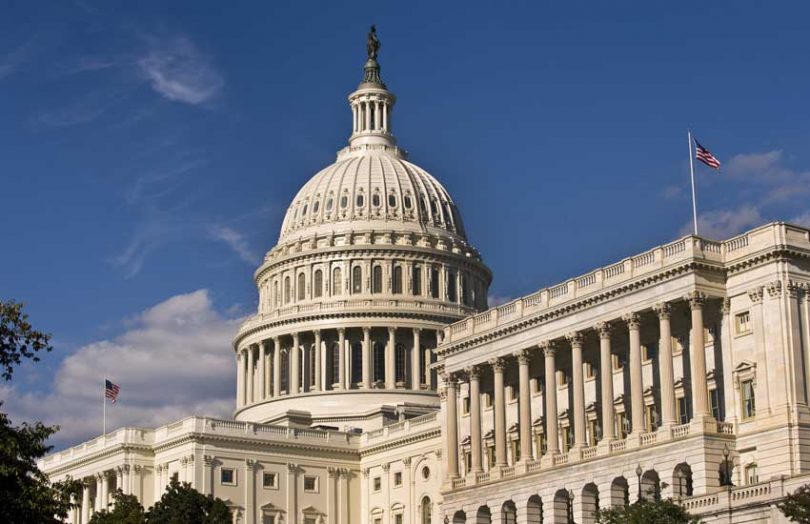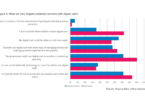Today, Congress held an online hearing on how to distribute COVID-19 stimulus payments better, as part of the U.S. House Committee on Financial Services. Congressman Tom Emmer acknowledged that really there were two topics: firstly, how the government can better use technology to deliver services and secondly a central bank digital currency (CBDC). The focus here is on the digital dollar.
Our preview outlined an expected debate over an account-based digital dollar or FedAccount, versus a tokenized digital dollar argued by Chris Giancarlo from the Digital Dollar Foundation.
But Congressman Emmer outlined his vision of a digital dollar, which is perhaps a little more radical.
A permissionless CBDC
“To be a truly permissionless digital cash, a digital dollar must have the same attributes as physical cash,” said Emmer.
“It is American values like freedom, privacy, openness and permissionless entrepreneurship that have led us to dominate global commerce and innovation. We should have the courage of our convictions to build these values into a digital dollar and not to emulate systems like China’s new digital yuan which is closed, centralized, surveilled and permissioned so that access can be denied and payments blocked by those in power.”
“Electronic cash will be just as susceptible to illicit use as the dollar is today. The same rules that apply to physical cash should apply to the digital dollar. While this may not go far enough for some, the only way to go farther would be to create a permissioned closed and surveilled system like China.”
Emmer concluded: “Technologies like this can empower individuals and make their governments more accountable directly to them. We can’t cede this power to the government at the expense of the individual.”
The Digital Dollar Project’s position is that as with physical cash, smaller amounts will be private. “The digital dollar will support a balance between individual privacy rights and necessary compliance and regulatory processes, decided upon by policymakers,” says the recent whitepaper.
Digital Dollar Project position
However, former CFTC Chair Chris Giancarlo of the Digital Dollar Project made similar points to Emmer.
“Throughout our history, America has been a leader in innovation. Whether it was launching the space program or building the internet, we’ve brought to every one of those innovations our core values.: the rule of law, individual liberty, free enterprise, and importantly the right to privacy.”
“Around the world, CBDC innovation is gaining global momentum. And the world is asking what role America is going to play and whether our core values will be brought to bear? The choice is either that we take a leadership role, or that we accept that others will take a leadership role and will put their values in this new innovation. I think that we have to choose to lead. And I think that if we do, we will increase financial inclusion, enhance democratic values and future proof the dollar for more generations to come.”
Borrowing from his background at the CFTC, Giancarlo noted that the world’s commodities are hedged in dollars. And that these commodities are becoming tokenized and programmable. “How long can the dollar remain a world reserve currency if it also does not become digitized, programmable, so that those instruments can be converted into this new digital format?” asked Giancarlo.
In response to a question from Congressman Bryan Steil, Giancarlo outlined his read of where a digital yuan might lead. He gave the example of an East African water purification plant built as part of China’s Belt and Road Initiative. It will leverage sensors to indicate when the plant is low on chlorine and using 5G technology, it will automatically order chlorine from a Chinese supplier paid for with the digital renminbi.
“It will totally bypass the global banking system, which we in the United States have dominated, which is also the basis of sanctions power,” said Giancarlo.
However, this sanction power is one of the reasons that the likes of China and Russia are keen to reduce the dominance of the dollar.
Addressing the underbanked
Meanwhile, all parties seemed to agree that there is a need to reach the unbanked and underbanked. The reality is that both a tokenized digital dollar or a FedAccount would take time to implement and is unlikely to address the issue in the near term.
While not perfect, prepaid debit cards have helped significantly in the recent Covid-19 distribution, which has been far faster than the 2008 support. But there are still numerous challenges.
Two areas highlighted were a lack of banking facilities and broadband penetration in rural areas. One suggestion is to use post offices for banking facilities. Another issue is the financial literacy that may be needed to adopt a digital dollar.
While a CBDC may help the younger urban underbanked, it’s unclear how it will help the less technically savvy or rural populations. And although a digital dollar is intended to complement rather than replace cash, the accessibility of cash in a digital dollar world needs exploration.






